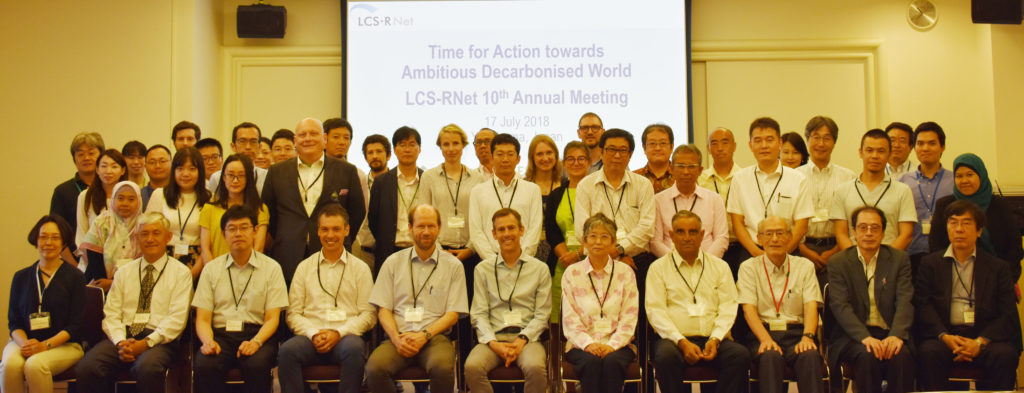- Date & Time:
Day1: Wednesday, 15 December 2021, 18:00- 21:00 (JST) (9:00-12:00 (GMT) /10:00-13:00 (CET))
Day2: Thursday, 16 December, 2021, 18:00- 21:00 (JST) (9:00-12:00 (GMT) /10:00-13:00 (CET)) - Venue: Online
- Organisers: LCS-RNet, Institute for Global Environmental Strategies (IGES)
- Language: English only
- Registration: https://us02web.zoom.us/webinar/register/WN_3yefstwrSLWSZN2Vq0Mrbw
On 15-16 December 2021, the Leveraging a Climate-neutral Society – Strategic Research Network (LCS-RNet) will organise its 12th annual meeting, inviting prominent researchers including Prof. Jim Skea, Co-chair of the IPCC WGIII, as well as Prof. Derk Loorbach, who is renowned for research on transition management. This annual meeting will set “Accelerating Actions for Leveraging a Climate-Neutral, Sustainable Society” as an overarching theme, featuring sessions to discuss decarbonisation in industries, as well as employment, international cooperation and finance for leveraging climate neutral societies.
|
Day 1 Wednesday, 15 December 2021 18:00-21:00 (JST), 9:00-12:00 (GMT), 10:00-13:00 (CET) |
||
|---|---|---|
| 18:00-18:40 (JST) | Opening PlenaryOpening remarks
Keynote presentation 1:“Just and Sustainable Transition”
|
Mikiko Kainuma Senior Research Advisor, IGES Dr. Mikiko Kainuma is a senior research advisor of IGES and a Secretary General of the Climate-neutral Society – Strategic Research Network (LCS-RNet). She has engaged in developing Asia-Pacific Integrated Model (AIM), which assesses policy options for stabilizing the global climate, particularly in the Asian-Pacific region. She is Lead Author of IPCC Special Report on 1.5 degrees and Coordinating Lead Author of UNEP Global Environment Outlook 6 (GEO-6). She received Nikkei Global Environmental Technology Award (1994), Remarkable Contribution to Science and Technology 2010: NISTEP (2010), NIES Awards (2002, 2007, 2008) and Academic Award by the Society of Environmental Science, Japan (2011).
Jim Skea Co-chair, IPCC AR6 WG3 Jim Skea is Professor of Sustainable Energy at Imperial College London with research interests in energy, climate change and technological innovation. His current main role is as Co-Chair of IPCC Working Group III for the 6th assessment cycle. He was Research Director of the UK Energy Research Centre 2004-12 and Director of the Policy Studies Institute 1998-2004. He has operated at the interface between research, policy-making and business throughout his career. He was a member of the UK Committee on Climate Change from its inception in 2008 until 2018, and the Chair of Scotland’s Just Transition Commission. From 2015-17, he was President of the UK Energy Institute. He was awarded a CBE for services to sustainable energy in 2013 and an OBE for services to sustainable transport in 2004. |
18:50-19:50 (JST) |
Session 1: Decarbonisation in IndustriesChair: Stefan Lechtenböhmer, Wuppertal Institute (WI) Presentations:
Panel Discussion:
|
Stefan Lechtenböhmer Wuppertal Institute (WI) Prof. Dr. Stefan Lechtenböhmer is Director of the Division Future Energy and Industry Structures of the Wuppertal Institute (WI) for Climate, Environment and Energy, Wuppertal, Germany and holds an adjunct professorship in Environmental and Energy Systems with a special focus on Future Sustainable Energy Systems at Lund University, Sweden. He acquired his PhD in energy and environmental management at the International Institute for Management, University of Flensburg, Germany. He conducts applied research in national and international energy and climate scenario analysis particularly on low carbon industries. He has led intensive stakeholder processes on deep decarbonisation scenarios with energy intensive industries. His research topics include design and evaluation of energy system transformation and Energiewende, GHG emission inventories and projections, sustainable building and planning, and the coal and natural gas sectors.
Fredric Bauer Emeritus Research Director, CNRS / Former Director, CIRED Dr. Fredric Bauer is an associate senior lecturer in Technology and society with a focus on sustainable industry at Lund University, Sweden. He has done extensive research on transition initiatives and low-carbon innovations in the energy intensive industries in Europe and was a contributing author to the IPCC AR6 WG3 chapter on industry. His current research focuses on lock-ins and transition pathways in the global petrochemical and plastics industries.
Imogen Rattle University of Leeds Dr. Imogen Rattle is a UKERC funded Research Fellow in Local Low Carbon Industrial Strategy within the Sustainability Research Institute at the University of Leeds. She is an energy social scientist who uses qualitative methods to explore the politics and governance of the low carbon transition within particular places. Her present work seeks to understand the challenges and opportunities involved in embedding climate change priorities within local industrial strategies in the UK. She has previously worked as a project manager at the Department for Business Energy and Industrial Strategy and the Environment Agency.
Erika Mancuso National Agency for New Dr. Erika Mancuso is a researcher at the laboratory resources valorization, in the Sustainability Department of ENEA, National Agency for New Technologies, Energy and Sustainable Economic Development, Italy. The laboratory focuses on the development, qualification and dissemination of methodologies and advanced technical services in the field of industrial, service and the territory. She is currently involved in: – Actions to support the territory for the implementation of industrial development and promotion tools, through a promotion and information activity aimed at transferring the circular economy models identified and shared with the stakeholders; – Contrasting actions climate change through European and national projects. She is co-author of over 50 scientific papers published in international peer-reviewed journals, Italian journals, National and International conference proceedings.
Jim Watson UCL Institute of Sustainable Resources Prof. Jim Watson is Professor of Energy Policy and Director of the University of College London (UCL) Institute for Sustainable Resources and Research Director of the FCDO Climate Compatible Growth programme. He is also Associate Faculty at SPRU. He was Research Director of the UK Energy Research Centre from January 2015 until December 2019. He is Fellow of the Academy of Social Sciences and the Energy Institute; a member of the Executive Committee of the Tyler Prize for Environmental Achievement; a judge for the Queens Awards for Enterprise: Sustainable Development; and a chair the Technical Advisory Group to the World Bank Energy Sector Management Assistance Programme (ESMAP).
Chris Bataille Simon Fraser University/IDDRI Dr. Chris Bataille is Associate Researcher at the Institute for Sustainable Development and International Relations (IDDRI) in Paris, and Adjunct Professor at Simon Fraser University in Vancouver. He also conducts freelance energy and climate policy consulting. He leads the DDPP Heavy Industry Deep Decarbonization Project. He is Lead Author of industry chapter of IPCC AR6. |
| 20:00-21:00 (JST) | Session 2: Employment for Leveraging Climate Neutral SocietiesChair: Peter Taylor, University of Leeds and UK Energy Research Centre (UKERC) Presentations:
Panel Discussion:
|
Peter Taylor University of Leeds and UK Energy Research Centre (UKERC) Peter is an internationally leading researcher with thirty years of experience working on a wide range of energy and climate change policy issues. He currently holds a joint appointment at the University of Leeds as Professor of Sustainable Energy Systems in the Schools of Earth and Environment and Chemical and Process Engineering. Peter has acted as advisor to a number of United Nations organisations, the International Energy Agency and the European Commission. He is also a member of several large national research centres including the Industrial Decarbonisation Research and Innovation Centre, the UK Energy Research Centre, the Centre for Research into Energy Demand Solutions, the Supergen Energy Networks Hub and the ESRC Centre for Climate Change Economics and Policy. Peter’s research is strongly interdisciplinary, combining science, technology, economics and policy to enhance the understanding of, and policy responses to, the challenges of accelerating the transition to sustainable low-carbon energy systems. Prior to joining the University of Leeds, Peter was Head of the Energy Technology Policy Division at the International Energy Agency in Paris from 2007 to 2011, responsible for high profile publications such as the Energy Technology Perspectives and the Energy Technology Roadmap series. In an earlier consultancy career, he was Technical Director of a major UK energy and environmental practice.
Robert Gross UK Energy Research Centre (UKERC) Prof. Robert Gross is Director of UK Energy Research Centre (UKERC). Prior to this role He was Director of the Centre for Energy Policy and Technology (ICEPT) at Imperial College London. He was also the Policy Director of Imperial’s Energy Futures Lab. He has wide-ranging research management expertise and has made a substantive contribution to UK energy policy development, acting as advisor to Select Committees, preparing reports and chairing committees for Government departments and non-departmental public bodies, and as a consultant.
Akihisa Kuriyama IGES Dr. Akihisa Kuriyama is a researcher at the Institute for Global Environmental Strategies (IGES). He had engaged in supporting the CO2 mitigation projects in the energy sector of Southeast Asian countries and conducted quantitative analysis on the international mechanisms such as the Kyoto mechanism. For the domestic issues in Japan, he worked for analysis to develop scenarios towards a decarbonized society, and to assess long and medium-term goals. He also engaged in projects to promote renewable energies such as Japan’s power system analysis and just transition issues.
Naoya Abe Tokyo Institute of Technology Dr. Naoya Abe is an associate professor at the Department of Transdisciplinary Science and Engineering, Tokyo Institute of Technology (Tokyo Tech.) Dr. Abe is working on wide range of environmental and social issues from sustainability point of view with the emphasis on people’s daily lives, including the topics related to water accessibility in developing countries, people’s recognition and acceptance of meat substitutes, waste management in different life-stages, acceptance of home PV systems. He holds Ph.D. from Cornell University in Applied Economics and Management and was a visiting professor at the Center for Global Engineering (CGEN) at the University of Toronto in 2018.
Richard Hanna UKERC Dr. Richard Hanna is a Research Associate at Imperial College London and works for the UK Energy Research Centre (UKERC). He has carried out systematic evidence reviews on energy technology innovation, low carbon heating policy, energy models and disruption, and green job creation. Previously he was a Research Fellow at the University of Reading from 2013 to 2015 contributing to the Dynamics of Energy Mobility And Demand (DEMAND) project. Richard completed his PhD at the University of Surrey in 2013, studying installer businesses and small scale renewable energy uptake in the UK.
Philippe Quirion CIRED Philippe Quirion is an economist, senior researcher at CNRS. He works at the International center on environment and development (CIRED) on the analysis of climate policies, renewable energy policies, energy efficiency policies; on the employment impact of environmental and energy policies; on the link between climate policies, competitiveness and carbon leakage; on the impact of climate on West-African agriculture and on tools to mitigate this impact. He has published 59 peer-reviewed papers, in the main energy economics and environmental economics journals but also in environmental science journals. He works regularly with climatologists and agronomists. He has been an elected member of the Comité national de la recherche scientifique.
http://www.centre-cired.fr/philippe-quirion/
Joyashree Roy AIT Prof. Joyashree Roy is the inaugural Bangabandhu Chair Professor at AIT. Joyashree lectures at the Department of Energy, Environment, and Climate, School of Environment, Resources and Development, AIT, Thailand. Joyashree was Indian Council of Social Sciences Research (ICSSR) national fellow and a Ford Foundation Postdoctoral Fellow at Lawrence Berkeley National Laboratory, Berkeley, USA. She is Coordinating Lead Author of Chapter of Demand, services and social aspects of mitigation of IPCC AR6. |
|
Day 2 Thursday, 16 December 2021 18:00-21:00 (JST),9:00-12:00 (GMT), 10:00-13:00 (CET) |
||
|---|---|---|
| 18:00-18:40 (JST) |
Opening PlenaryChair: Hideyuki Mori, IGES) Keynote presentation 2:
|
Hideyuki Mori IGES Mr. Hideyuki Mori is a graduate of the School of Engineering, Kyoto University. He joined IGES in 2003 and served as the Executive Director from 2010 to 2020. Prior to joining IGES, he served as Environment Specialist at the Asian Development Bank, Senior Environmental Coordinator of the United Nations High Commissioner of Refugees, Director of the Office of Research and Information at the Global Environment Issues Division of the Environment Agency of Japan (current Ministry of the Environment), and as Portfolio Manager of the Division of GEF at the United Nations Environment Programme. He was a professor at Keio University from 2008-2010. He has served as the Special Policy Advisor of IGES since November 2020. His recent English publications include thee COVID-19 position papers (IGES, May 2020-Sep 2021). He has been involved in the IGES’s Net Zero Asia project.
Derk Loorbach Dutch Research Institute for Transitions (DRIFT) Prof. Derk Loorbach is a director of DRIFT (www.drift.eur.nl), Professor of Socio-economic Transitions and academic lead of the Design, Impact, Transition (DIT) platform at Erasmus University Rotterdam, The Netherlands. He is one of the founders of the transition management approach as new form of governance for sustainable development. He is a highly cited author and contributor to the scientific development of these concepts, but does so through working in and with society, government and business. This way he combines scientific with societal impact working from the global (UN) level to the very local community level and from energy, mobility and food to finance, health care and biodiversity. |
18:50-19:50 (JST) |
Session 3: International Cooperation for Leveraging Climate Neutral SocietiesChair: Sergio La Motta, National Agency for New Technologies, Energy and Sustainable Economic Development (ENEA) Presentations:
Panel Discussion:
|
Sergio La Motta National Agency for New Technologies, Energy and Sustainable Economic Development (ENEA) Mr. Sergio La Motta is the ENEA’s representative in the steering committee of LCS-RNet. At COP 26 he has been elected member of the Technology Executive Committee (TEC), the policy branch of the Technology Mechanism – TM instituted at COP16. He served as a member of the advisory board of the Climate Technology Center and Network (CTCN), the implementation branch of TM, for the period (2016-2021). He is a member of the Italian National Competent Authority for the implementation of the Emission Trading System (ETS) in Italy. He has got a degree in Physics at the University of Pisa and started his career in the photovoltaic laboratory at ENEA. He has been a member of the Italian negotiation team for climate issues staring from COP3 in Kyoto.
Marcello Capra Italian Delegate at Strategic Energy Technology Plan – SET Plan and at Mission Innovation Mr. Marcello Capra is an Italian Delegate at Strategic Energy Technology Plan – SET Plan and at Mission Innovation (MI). MI is a global intergovernmental initiative aimed at accelerating clean energy innovation: 25 members on 5 continents are working to stimulate innovation with the objective to make clean energy more widely affordable.
Toshihiko Masui National Institute for Environmental Studies (NIES) Prof. Masui is a head of Social Systems Division(Decarbonization Measures Assessment Section)at National Institute for Environmental Studies (NIES) and a Professor at the Tokyo Institute of Technology. He has developed Asia-Pacific Integrated Model (AIM) and has worked intensively to transfer the AIM model to Asian countries. He is a Lead Author of the near-to mid-term scenario chapter of IPCC AR6.
Julia Terrapon-Pfaff Wuppertal Institute (WI) Dr. Julia Terrapon-Pfaff is the co-head of the research unit “International Energy Transitions” at the Wuppertal Institute. Her primary research areas are the development of sustainable transition strategies and renewable energy concepts for developing and emerging countries. The research projects she leads focus on the complex socio-economic and technical interactions in the context of the energy transition and the development towards a low-carbon economy.
Petra Manderscheid JPI Climate Central Secretariat Petra Manderscheid has been the Executive Director of the Joint Programming Initiative Connecting Climate Knowledge for Europe (JPI Climate) at the Central Secretariat based in Brussels. JPI Climate is a European intergovernmental initiative aiming at jointly advancing and aligning climate research activities under a common Strategic Research and Innovation Agenda. The Central Secretariat composed of four staff members ensures the implementation of decisions taken by the JPI Climate Governing Board that is composed of 19 European countries representatives. Initially trained in economic and social administration in France, UK and Germany Petra Manderscheid had worked – before taking this position – in politics within the European Parliament.
Education
1995 Master in Economic and Social Administration (AES) at Université Jean Moulin Lyon III, Lyon/France.
Bundit Limmeechokchai Sirindhorn International Institute of Technology, Thammasat University (SIIT-TU) Prof. Bundit Limmeechokchai is Professor at Sirindhorn International Institute of Technology, Thammasat University (SIIT-TU), Thailand. His research interests are energy technologies, energy efficiency, energy economics, planning and policy, modeling of energy and environment systems, renewable energy, low-carbon technologies, demand-side management, integrated resource planning, and CO2mitigation. He is a member of IPCC Task Force on National Greenhouse Gas Inventories (TFI). |
| 20:00-21:00 (JST) |
Session 4: Finance for Leveraging Climate Neutral SocietiesChair: Kirsten Halsnæs, The Danish Technical University) Presentations:
Panel Discussion:
|
Kirsten Halsnæs The Danish Technical University Prof. Kirsten Halsnæs is Sustainable Development Coordinator/Senior Research Specialist at UNEP Risoe Centre on Energy, Climate and Sustainable Development (URC), Denmark, and Professor of Department of Technology, Management and Economics Sustainability, Technical University of Denmark (DTU). Kirsten is an international expert on the economics of climate change and has played a leading role in several international studies on sustainable development and climate change policies. The studies include estimation of costs and benefits, and development impacts of climate change mitigation as well as studies on climate change vulnerability and response strategies with partners in developing countries in Asia, Africa and Latin America. She is Coordinating Lead Author of the sustainable development chapter of IPCC AR6.
Yannick Glemarec Green Climate Fund (GCF) Dr. Yannick Glemarec is the Executive Director of the Green Climate Fund (GCF). Yannick has 30 years of international experience in climate change, development and finance, and their interrelationships. Prior to joining GCF, he was the UN Assistant Secretary-General and UN Women Deputy Executive Director for Policy and Programme. He also served as the Executive Coordinator of the UN Multi-Partner Trust Fund Office and UNDP Director for Environmental Finance.
Nokuthula Dube Climate and Development Finance Advisor – IPCC Lead Author Dr Nokuthula Dube is a Climate and Development Finance Advisor, an international expert with significant professional experience and working at the intersection of science, policy and finance. She has been a Daphne Jackson Fellow at the Department of Physics-Grantham Institute of Climate Change at Imperial College and a UK Royal Society-DFID energy and climate change award recipient. She is a lead author of the investment and finance chapter of IPCC AR6.
Jean-Charles Hourcade Centre International de Recherches sur l’Environnement et le Développement (CIRED) Prof. Jean-Charles Hourcade is Research Director Emeritus of the National Center for Scientific Research (CNRS) and Director of Studies Emeritus at the School for Advanced Studies in the Social Sciences (E.H.E.S.S) in France. Prior to this, he was acting Director of the CIRED (Centre International de Recherches sur l’Environnement et le Développement) between 1985 and 2012. He participated in the French negotiating team between COP 1 and COP 6. He is a review editor of Investment and finance chapter, IPCC AR5.
Maiko Morishita IGES Ms. Maiko Morishita is program manager at Finance Taskforce at Institute for Global Environmental Strategies (IGES). Before joining IGES, she worked at a foreign investment bank and Oxfam Japan. She has worked for climate change (adaptive finance), food problems (small-scale farmer support, land rights), development finance (ODA, environmental and social considerations, public-private partnership), business and human rights, etc. |
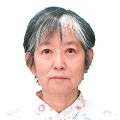
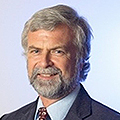







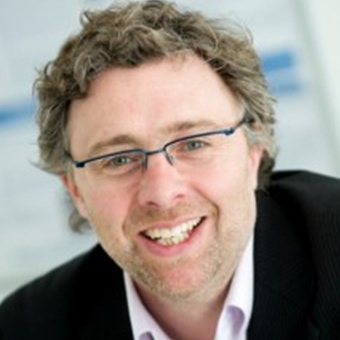
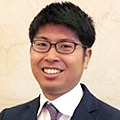




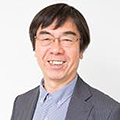



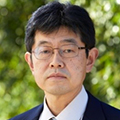






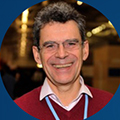



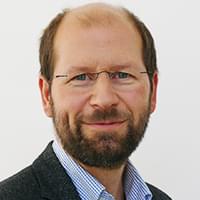
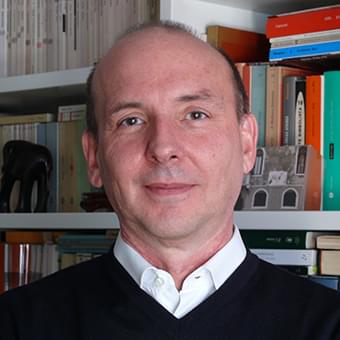








.jpg)
































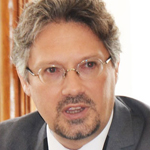








.jpg)








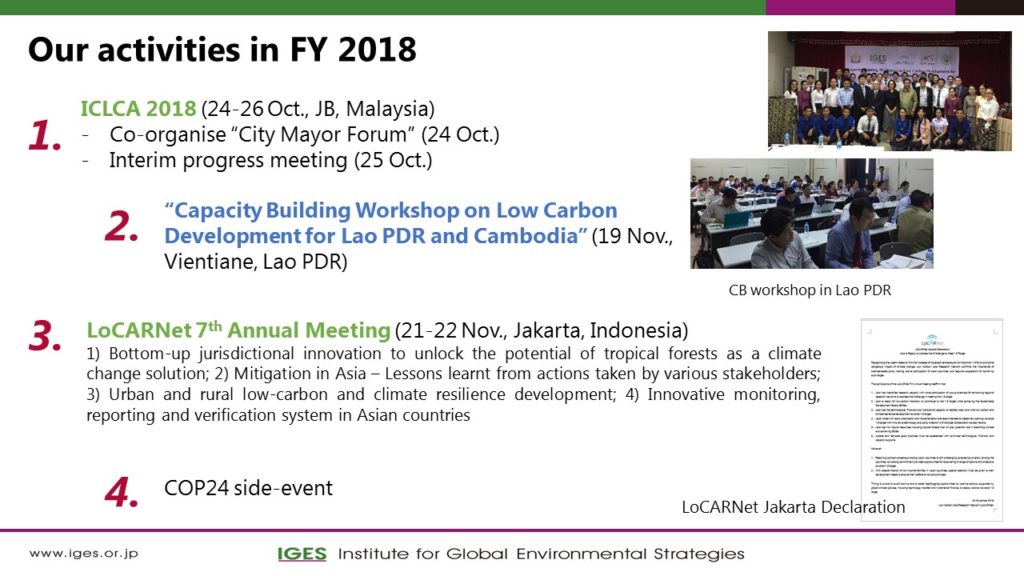
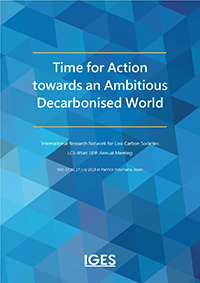 PDF (9.4MB)
PDF (9.4MB)